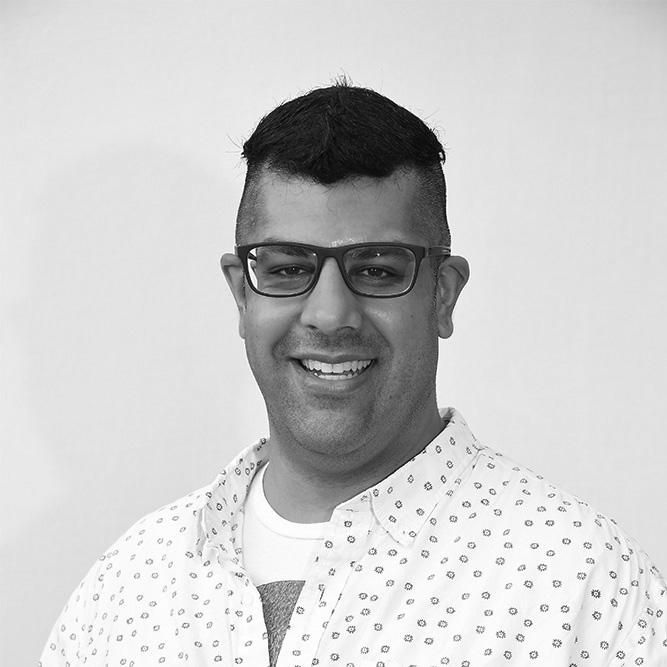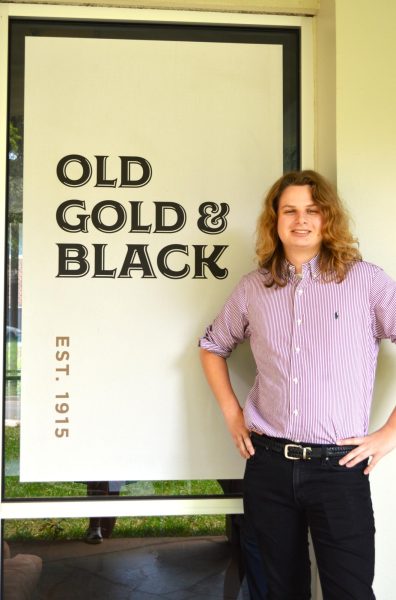Aside from medical and law schools, it seems numerous types of graduate programs go largely undiscussed at Wofford. Within the humanities department, those who want to pursue a higher degree in their respective field often find themselves turning to posters around the college or, in this case, a newspaper article
Muhammad Velji is Wofford’s philosophy department’s current James A. and Susan K. Keller postdoctoral teaching fellow.
This is a fellowship, established in 2016, that is offered every two years, allowing early philosophy professors to gain valuable experience at Wofford’s small liberal-arts environment. Velji recently earned his doctorate in November from McGill University.
Holding such recent familiarity with the doctoral process and being the James and Susan Keller teaching fellow, Velji had much to discuss about what to expect when going into a graduate program, what to do to prepare for the shift from Wofford to graduate school and what it is like to teach at Wofford.
He says that he was able to bring his background in philosophy of race and postcolonial thought to Wofford and that “in return, (he gets) basically a mentorship in teaching-more specifically, teaching at a small liberal arts college.”
Wofford, he explained, is a very different environment than his undergraduate background.
“I’ve only been to big schools with undergrad classes, even in philosophy, where first, second and third-year classes are 60 to 100 people, and only in my fourth year did I get a class with like 20 people,” he said.
Wofford is also much more “student-centered” than the lecturing style of teaching Velji previously experienced.
He discussed how he felt Wofford’s small size is also great, due to the “interdisciplinary cohort,” and specifically mentioned one program that allowed all of Wofford’s new professors to interact. Through this, he was able to regularly meet with people from religion, theater, business and art backgrounds, in addition to numerous others.
Reflecting on his experience as an undergraduate student, looking at his future plans, Velji stressed that students have to try to make an accurate decision and judgment as to whether they actually want to pursue a graduate degree, weighing all of their options.
“You’re going to be dedicating your 20s, and maybe even your early 30s, to getting paid around 25 to 35 thousand dollars … so see if that’s really what you want, Velji said. “It’s weird to project yourself 10 years into the future, but I would advise doing that.”
Beyond that, Velji asserted it is very important for students to know about the school they plan to go to.
“When you’re thinking of which place you want to apply to, look at particular students of particular professors and see what their projections are,” Velji continued. “Are they doing well? What kinds of jobs are they getting?”
Velji also talked about about the experience of researching and writing a dissertation, stating, “the first thing is that every big project isn’t just one singular arc-it’s a series of smaller arcs that you have to do.”
“Often, you pitch the idea to the grad school of what you’re going to do, but, usually once you get there, it is okay to change your mind,” Velji said. “Be open-minded and go into each class, be willing to be molded by the professor. They’re working on cutting-edge stuff, so it’s worth letting your mind be changed.”
Velji explained that this open-mindedness is good, because students are going to be a part of these programs for between six and seven years and they need to be able to figure out something that they want to dedicate years of their life to as well as keeping up with the public’s current interest.
Adding “on a pragmatic note” for those looking to go further in philosophy, students need to be able to consider both what they love and what has available positions, because many fields, like the example of the philosophy of art, are going to be filled by the best of the well-known schools, like Princeton.
Since philosophy schools are typically divided between analytic and continental philosophy, it is important for philosophy students to know what resources and teachers schools have.
Some examples pointed out by Velji were Vanderbilt University, which has a lot of good resources for their philosophy students as well as having resources on both sides, and Penn State University, which has built their department with many great continental professors over the last couple of decades.
On the analytic side, Velji suggested students track what the Leiter Report, created by University of Chicago professor Brian Leiter, says, because it has a “sort-of self-fulfilling prophecy, where what is said to be a number two school is considered number two, and hirers will view that as the number two school.”
Velji described that the student-teacher ratio in grad school will be very similar to Wofford’s small class sizes but a big difference from the anonymity felt at bigger colleges, like in his undergrad courses at the University of Toronto.
He also described that “first-year philosophy courses are typically survey courses, but, as you get out there, it gets very specific. You’re never really learning ‘political philosophy’ in grad school; you’re typically learning in-depth a single theorist or work.”
He explained that students will only take about three courses each term in grad school, but added that having a lighter schedule can have its pros and cons.
“You’ll take one to two years of classes and then have three to four years of open time, which is both great and terrifying because you’re unanchored, and you are the only person driving yourself,” Velji said.
“There is no one on your case really,” said Velji. “Your advisor may email you every month or two, but usually it’s up to you to schedule meetings with them and treat it like a project. That can be kind of scary.”































